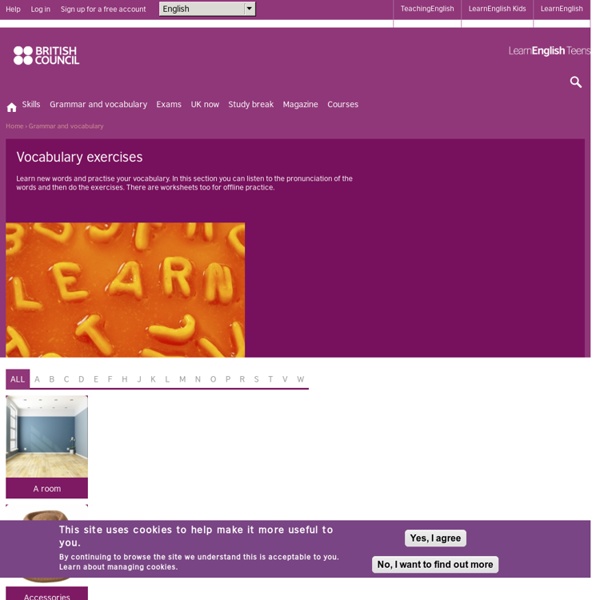20 Quaint British Phrases – Britain and Britishness
In his short story The Canterville Ghost from 1887, Oscar Wilde wrote: We really have everything in common with America nowadays except, of course, language. Throw a few British idioms into the mix and our American friends and colleagues may be left scratching their heads and reaching for their phones. From hundreds of British phrases, we’ve selected 20 of our favorites that have an old-fashioned quaintness. 1. A little bird told me
I was so sorry to hear your news: Expressing sympathy – About Words – Cambridge Dictionaries Online blog
by Liz Walter It can often be difficult to know what to say to someone we know who has experienced loss, illness or another painful event, and even harder if we have to do it in another language. Today’s post looks at phrases we use to express sympathy in a sincere and empathetic way. Choosing appropriate words will of course depend on how well we know the person concerned, and also the type of event and how upset we think that person is likely to be.
11 Idioms & Expressions You’ll Hear In An International Workplace
By: Neya Abdi Discovering idioms and new expressions is a fun part of learning any language. It can also be frustrating, especially when you hear them for the first time in a setting where you want to make the best impression.
Neologisms Database - Terminology Coordination Unit [DGTRAD] - European Parliament
Languages are constantly evolving. Though purists may shudder at what they see as the degradation of ‘correct’ language use, innovative and new ways of using grammar, syntax and vocabulary show a bill of good health for a language. At the vocabulary level, we find neologisms. A neologism is a new word or expression: a newly coined term.
Grammar Quizzes
Grammar-Quizzes › Noun Phrases › Nouns–Suffixes › Noun Suffixes Recognize a variety of noun forms In Context Our plane departed from San Francisco on time. We arrived in San Diego at 11:00 a.m. The plane landed without difficulty.
Adjective Suffixes
Grammar-Quizzes › Modifiers to Nouns › Adjective Summary › Adjective Forms Form adjectives from other word forms This evening, we saw a spectacular sunset. The sky reflected colors from violet to red.
25 Online Games for English Language Learners
GameZone: Dozens of simple, straightforward games about grammar, spelling, and vocabulary reach out to English language learners at all levels. Keep in mind, however, that this site is based in the U.K. and follows a different set of linguistic rules than American English.Vocabulary.co.il:This series of vocabulary and games runs the gamut from elementary to high school levels of proficiency. Each is recommended for both native speakers as well as students learning English as a second or third (or more) language.Power Words:PBS’ WordGirl and her simian sidekick Captain Huggy Face do battle against Fair City’s most sinister citizens, but it’s up to players to determine the course of the action. Picking the wrong words means letting the villains follow through with their sneaky plots.LearnEnglish Kids:The British Council presents a suite of super cool games covering different elements of the English language.
18 English words that mean very different things in Britain and America
As the old adage famously goes: you say tom-MAY-toes, and I say tom-MAH-toes. We should probably call the whole thing off, right? Ever since the might of the British Empire was expelled from the United States, ordinary folk from both sides of the pond have chuckled at each other's use of the English language and pronunciation. Here are several important examples you need to remember - simply to make sure no one gives you a weird look when you're off on your holidays. 1. A jumper
Grab Onto Phrasal Verbs
Welcome back to Everyday Grammar from VOA Learning English. Today we look at a very common verb form in English – phrasal verbs. There are over 5,000 verbs that fall in this category.
Nine ways to revise English vocabulary using slips of paper
What can teachers do when classroom technology stops working? Cristina Cabal, latest winner of the British Council's TeachingEnglish blog award for her post on pronunciation, suggests nine activities for revising English vocabulary using simple slips of paper. Nowadays, it seems very simple to plan a lesson that makes use of the many tools available online, especially as more and more of us have access to the Internet in our classrooms.
Seven steps to vocabulary learning
You might expect that, after having been exposed to a word in ten, twenty, or maybe at the very most thirty, contexts, a learner will gradually piece together the word's meaning and start to use it correctly, appropriately and fluently. Classroom context Seven steps to vocabulary learning Conclusion Classroom context Of course we cannot expect a learner to acquire difficult words in the same way as a young child acquires their first language, but, perhaps as teacher we can somehow help learners to arouse their 'learning monitor' by, for example, providing rich contexts containing the target language and by giving our learners time to reflect on what the language item means. In this way teachers can use the EFL classroom to replicate the real world and nurture strategies to help students understand and produce difficult language items which often seem beyond their grasp.
Koprowski - Ten Good Games for Recycling Vocabulary
The Internet TESL Journal Mark Koprowskimarkkoprowski [at] yahoo.com Introduction Learning is remembering. If we respect this axiom, the review and recycling of new language items will be critical if they stand a chance of becoming readily accessible in long-term memory. In fact, students do the majority of their forgetting shortly after the lesson and then the rate of forgetting diminishes.


